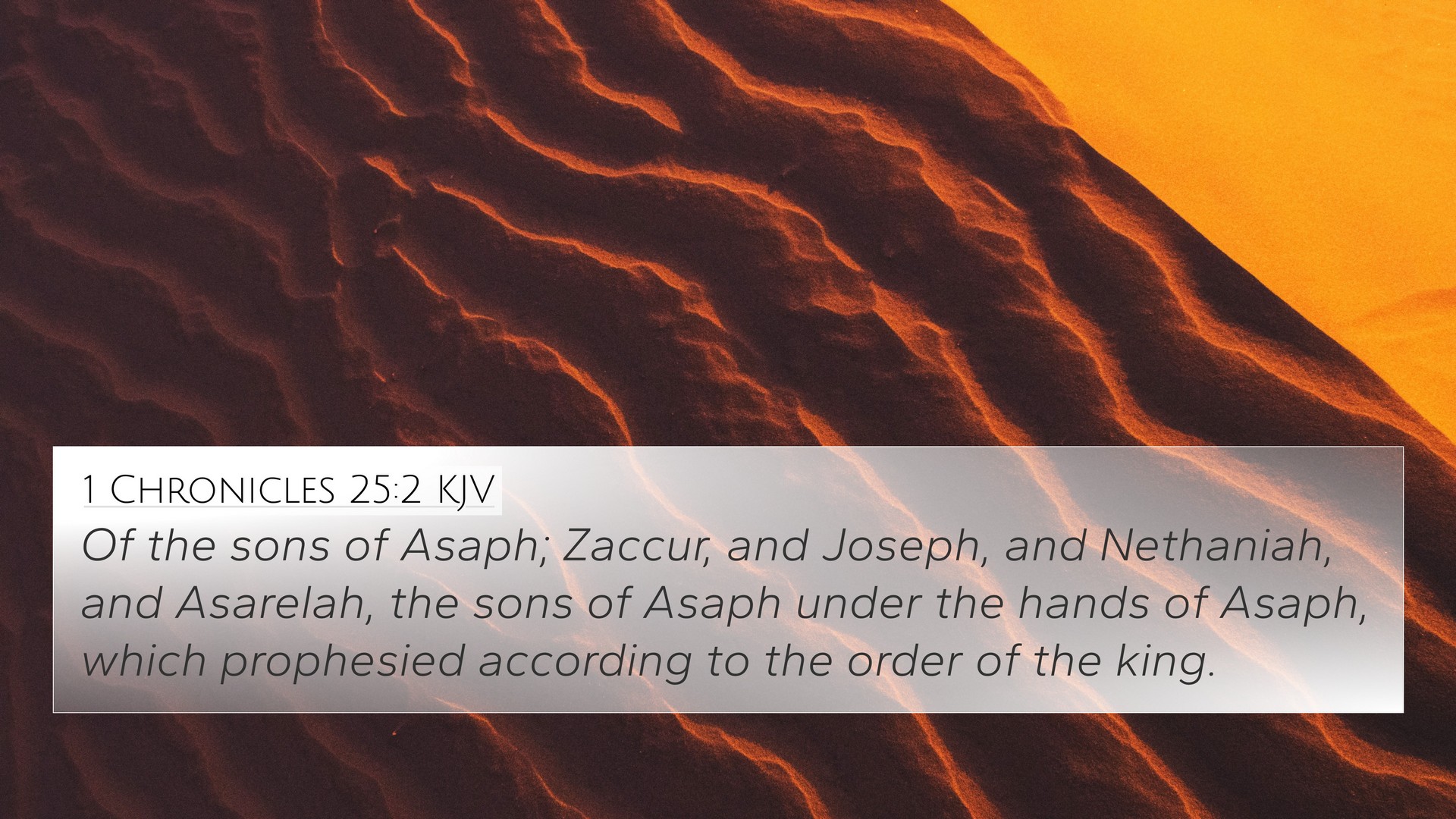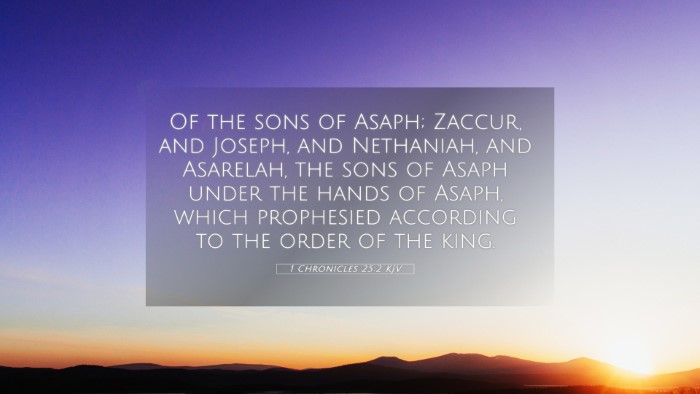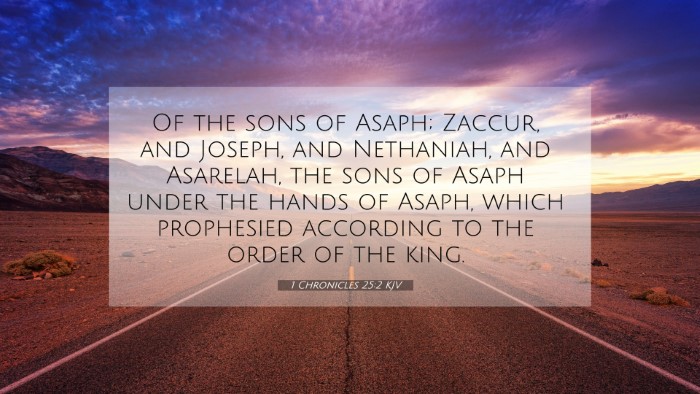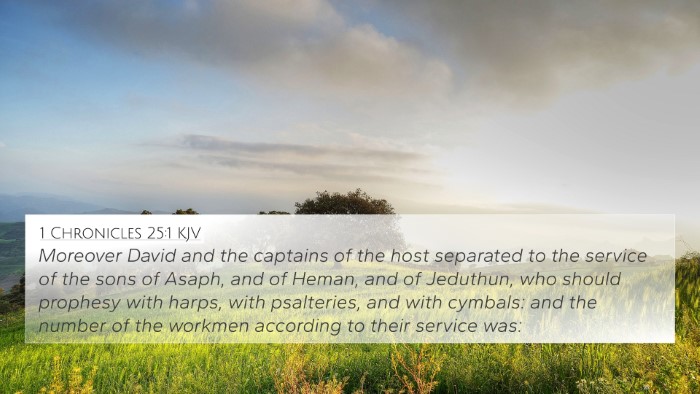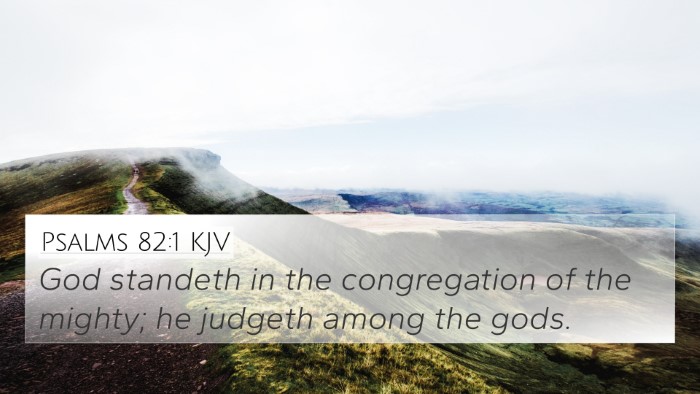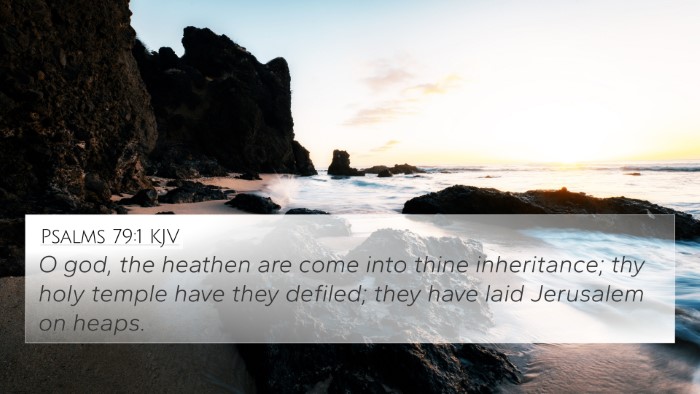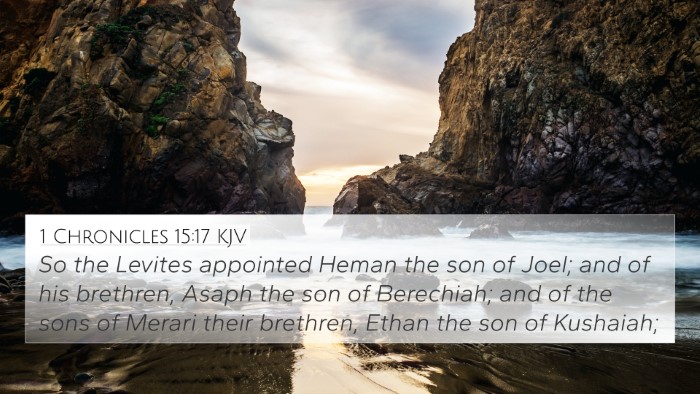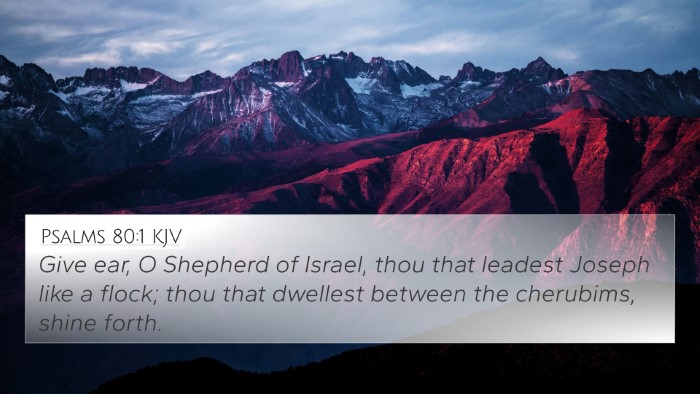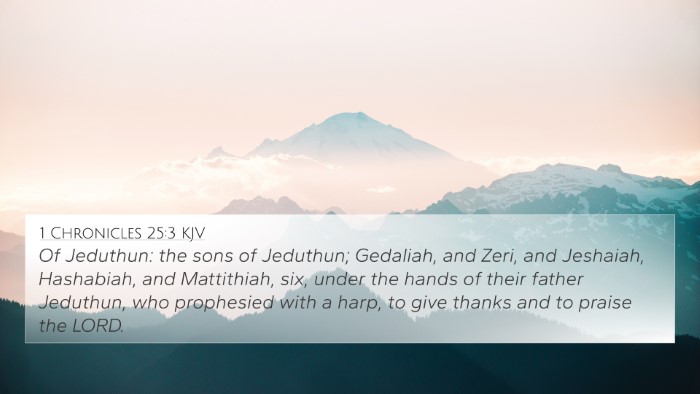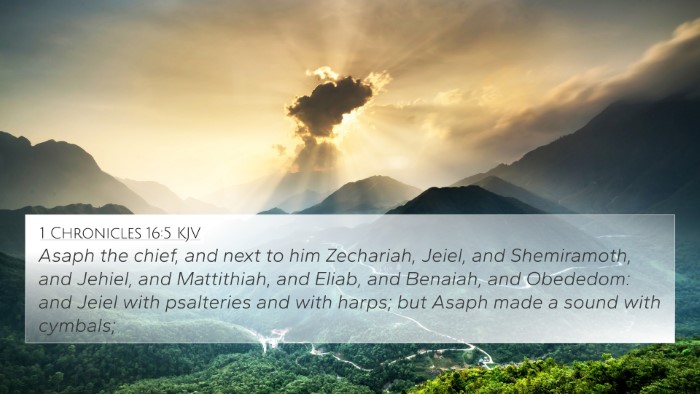Understanding 1 Chronicles 25:2
1 Chronicles 25:2 states: "Of the sons of Asaph; Zaccur, and Joseph, and Nethaniah, and Asarelah, the sons of Asaph under the hands of Asaph, which prophesied according to the order of the king." This verse is part of the broader context concerning the organization of temple worship and the roles of the Levites.
Summary of the Verse
This passage elaborates on the division of temple musicians, specifically focusing on the sons of Asaph who performed their duties under the leadership of their father, Asaph. Such organization was vital for maintaining the order of worship in the temple, highlighting an ancient practice of prophecy and musical ministry.
Commentary Insights
Matthew Henry's Commentary
Matthew Henry emphasizes the importance of Divine appointment in the roles assigned to the sons of Asaph. He notes that being part of this order not only provided a sense of responsibility but also showed the constant need for God’s guidance and anointing within the worship practice. The prophetic nature of their ministry underlines their spiritual authority and the significance of worship as a form of connection with God.
Albert Barnes' Notes
Albert Barnes discusses the significance of music in worship, asserting that these musicians were essential to the spiritual life of Israel. He explains that the "prophesying" mentioned in the verse might suggest that their music was a form of spiritual expression that fostered an environment for divine revelation and worship. He also ties the arrangement of musical worship to the biblically ordained leadership that reflects God’s guidance.
Adam Clarke's Commentary
Adam Clarke offers a view on the familial aspect of worship roles, noting the structured lineage of worshippers. He emphasizes that the structuring of singers signifying their roles symbolizes God's order and beauty in worship. Clarke elaborates that this passage ties into the thematic understanding of how worship was carried out in Israel and the consequences of leading in worship effectively.
Thematic Connections
The organization of the musicians in 1 Chronicles 25:2 illustrates various biblical themes, such as:
- The importance of worship: Worship was not a casual activity, but an ordered and holy act within the community.
- The role of prophecy in worship: Music and prophetic ministry played crucial roles in connecting the people with God.
- Divine order: Highlighting structure in leadership and function within spiritual practices.
Related Bible Cross References
This verse is interlinked with various scriptures providing a comprehensive understanding of worship, prophecy, and the role of musicians in biblical history. Here are some notable cross-references:
- 2 Chronicles 5:12-14: Discusses the musicians in the temple during the dedication.
- 1 Samuel 10:5: Mentions prophesying with music in a prophetic context.
- Psalms 150: A call to worship using musical instruments.
- Ezra 3:10: Describes the Levites and singers in rebuilding the temple.
- Hebrews 2:12: References singing praise in the assembly, connecting with the heritage of worship.
- 1 Peter 2:9: Talk about a royal priesthood called to declare praises.
- Amos 5:23-24: Highlights God's desire for justice and not merely music without righteousness.
Exploring Connections
In examining scripture, we can see thematic Bible verse connections that enhance our understanding of worship, community, and the divine order. The sons of Asaph exemplified the ideal of prophetic leadership through music.
Tools for Cross-Referencing Biblical Texts
To study the connections between Bible verses, there are numerous tools available:
- Bible concordance: Helps locate verses related to specific words or themes.
- Bible cross-reference guide: Offers a compilation of verses that relate to one another, providing deeper insight.
- Cross-reference Bible study methods: Techniques such as thematic studies or comparative analysis can illuminate relationships between scripture.
Conclusion
1 Chronicles 25:2 is a valuable verse that emphasizes the significance of divine order in worship through the prophetic ministry of music. The teachings from respected commentators underscore God’s intention in designing worship roles and spiritual expressions. By utilizing cross-referencing tools and understanding connections within scripture, one can gain a richer, more nuanced interpretation of biblical texts, enhancing personal study and communal worship experiences.
